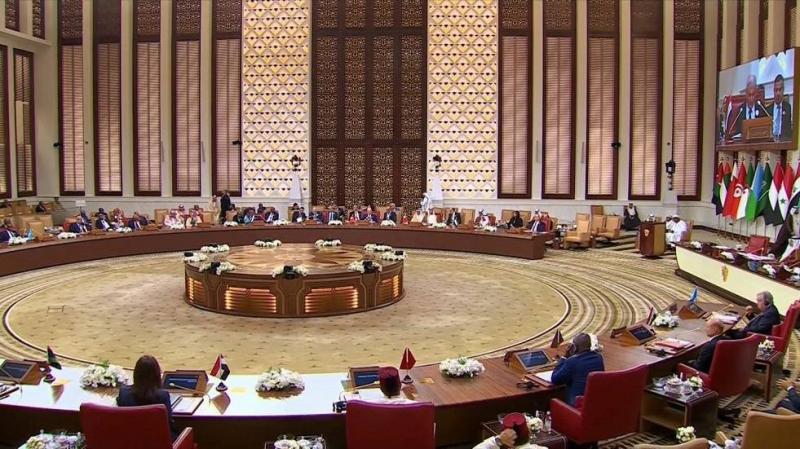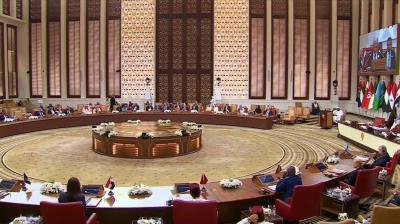Dr. Mahmoud Khalifa, Acting Head of the Political Science Department at the Applied Science University, affirmed that the Kingdom of Bahrain serves as a model in Arab joint action. He pointed out the prominent role of the Kingdom in enhancing Arab cooperation through its diplomatic and political initiatives led by His Majesty King Hamad bin Isa Al Khalifa, the King of the country, in supporting and promoting peace and security in the region.
Dr. Khalifa stated that the success of the Arab Summit, dubbed the "Bahrain Summit," underscores the firm positions of the Kingdom in supporting Arab and regional issues and strengthening Arab unity and stance. He highlighted that Bahrain has truly proven to be the home of the Arabs through its excellence in organizing this summit and the important decisions and recommendations that resulted from it, noting the praise it received from leaders and participants for its distinguished hosting and meticulous organization, which contributed to creating a conducive environment for constructive dialogue and discussion.
The Acting Head of the Political Science Department noted that Bahraini diplomacy has a distinguished record in promoting joint action with various Arab and international countries and institutions, and it has made sincere efforts to enhance the Kingdom's standing at both regional and global levels by fostering relations with brotherly and friendly nations, developing cooperation with regional and international organizations, and committing to collective action in defending Arab and Islamic causes.
Dr. Khalifa referred to many issues discussed and raised at this summit, the most important being the enhancement of regional security, as the summit emphasized the necessity of strengthening security cooperation among Arab countries to confront common threats such as terrorism and extremism. Arab leaders also renewed their support for the Palestinian cause and their commitment to continuing efforts to achieve a just and comprehensive solution based on international legitimacy and the Arab Peace Initiative, stressing the need to end the Israeli occupation and establish an independent Palestinian state along the 1967 borders.
The Acting Head of the Political Science Department stated that the summit focused on enhancing economic and trade cooperation among Arab countries by establishing joint projects and supporting mutual investments, in addition to the importance of developing the education sector and using modern technology to foster sustainable development by proposing the establishment of training and development centers in the fields of science and technology to enhance human capacities in Arab countries.
Regarding sustainable development and the environment, Dr. Mahmoud Khalifa noted that the summit discussed environmental challenges such as climate change and water resource scarcity, emphasizing the need to adopt sustainable development policies that preserve the environment and ensure resource sustainability for future generations. Concerning human rights, the summit affirmed the necessity of promoting women's rights and empowering them in various fields, as well as enhancing youth rights and enabling them to participate effectively in building the region's future.
In conclusion, Dr. Mahmoud Khalifa stated that the Kingdom of Bahrain excelled in providing a suitable environment for constructive dialogue and fruitful discussions, contributing to achieving consensus on many pivotal issues. He emphasized that Bahrain's hosting of the Arab Summit reflects its steadfast commitment to supporting Arab joint action and enhancing integration among Arab states, asserting that the Arab Summit in Manama demonstrated the importance of Arab cooperation and solidarity in addressing common challenges.




